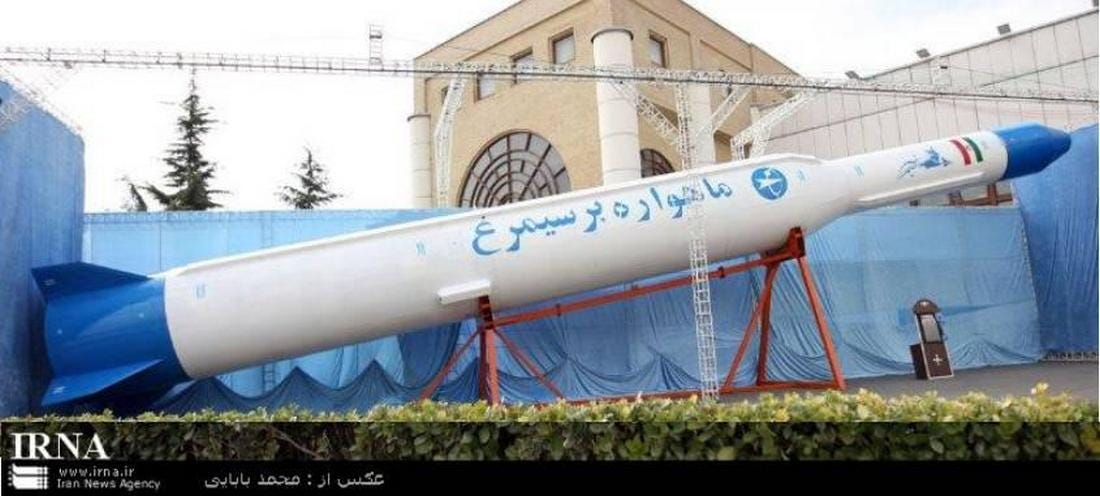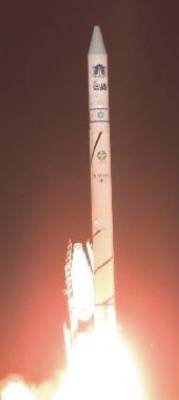Cohen1984
FULL MEMBER
New Recruit
- Joined
- Dec 26, 2013
- Messages
- 45
- Reaction score
- 0
- Country
- Location
Iran Just Cancelled Its Space Program
Yes, Iran had a space program
by JASSEM AL SALAMI
After six years of massive expenditures and lurid propaganda, on Jan. 9 Tehran shut down its troubled space program. The unceremonious cancellation occurred without notice in the Iranian press.
Authorities are spreading the space agency’s manpower and assets across four ministries including the telecoms ministry and the ministry of defense.
Iran had dabbled in space exploration since the early 1970s. In 2002, reformist president Mohammad Khatami ordered the ministries of science and telecommunications to establish a national program for achieving space capabilities, mainly focusing on the design and development of satellites with Russian cooperation.
But the Iranian Space Agency, in its current form, actually formed on Sept. 27, 2010, when then-president Mahmoud Ahmadinejad brought the national space consul and several small research institutes under the direct supervision of presidential office, this time mainly focusing on space launchers. Rockets, that is.
“When we launch a satellite into space, there is a huge boost in the morale of the public,” Ahmadinejad explained.
The new Iranian space program benefited from immense investment by the Iranian government. At least three major institutions supported the program.
The Imam Khomeini Space Center in Semnan was responsible for the construction and launch of the rockets. The Iranian Space Research Center in Tehran oversaw development of subsystems. The Imam Sadegh Observatory Complex in Arak tracked Iranian and foreign satellites.
Dozens of small university research groups supported the three main facilities.

At top—Kavoshgar. Above—Simorgh. Iranian state media photos
The Iranian space program consisted of six launch vehicles—three of which the space agency actually completed—plus subvariants of the vehicles.
The first was the Kavoshgar system, consisting of a Zelzal-3 or Frog-7 rocket retrofitted with a detachable capsule which could return to Earth via parachute.
Kavoshgar mainly boosted into space animals such as worms, turtles and monkeys—for research, of course. The latest version of Kavoshgar family was the Pajohesh launch vehicle, which was based on the Shahab-2 liquid-fuel missile rather than a solid-fuel rocket.
The second type was the Safir space launch vehicle, a modification of the famous
Shahab-3 ballistic missile. The Safir had the most diverse subvariants and was the most successful Iranian space vehicle, with three successful launches.
A Safir placed into low orbit the Omid satellite, Iran’s version of Sputnik, as well as the Rasaad, an imagery satellite with an unenviable resolution of more than 100 meters.
The Simorgh, the space program’s ultimate achievement, was in fact a copy of North Korea’s Unha space launch vehicle. Simorgh used four enlarged Scud missile engines to deliver to high orbit a small payload of around 100 kilograms.
Tehran had hoped Simorgh would evolve into a 16-engine variant capable of boosting two astronauts into space. But Simorgh never had a successful launch.
The Iranian Space Agency promised no fewer than 10 rocket launches starting in 2010, but completed only two. A number of launches failed, one resulting in a explosion that damaged a launch pad at the Imam Khomeini facility in Semnan.
Iranian space research centers designed at least 24 experimental satellites, but only three ever went to space on Tehran’s rockets. Failed launches destroyed many others.
Saddam Hussein-era Iraq, Libya and Zambia also had space programs meant to boost their people’s spirits. But exploring space is a bit too costly to do just for propaganda purposes. Today Iran is in a severe financial crisis. Tehran couldn’t afford to keep burning money on failed, pointless launches.
Iran also suffers from a massive brain-drain, with many of its young scientists leaving the country to work in the West. On Jan. 12, the head of Iran’s industrial Basij—the militia overseeing moral purity in research centers and industries—complained that two of Iran’s space scientists had fled to Brazil.
It’s possible that Iran could launch a few of its remaining rockets. But with no single space agency and no sustained funding, Tehran’s orbital ambitions all but ended on Jan. 9.
Iran Just Cancelled Its Space Program — War Is Boring — Medium

Yes, Iran had a space program
by JASSEM AL SALAMI
After six years of massive expenditures and lurid propaganda, on Jan. 9 Tehran shut down its troubled space program. The unceremonious cancellation occurred without notice in the Iranian press.
Authorities are spreading the space agency’s manpower and assets across four ministries including the telecoms ministry and the ministry of defense.
Iran had dabbled in space exploration since the early 1970s. In 2002, reformist president Mohammad Khatami ordered the ministries of science and telecommunications to establish a national program for achieving space capabilities, mainly focusing on the design and development of satellites with Russian cooperation.
But the Iranian Space Agency, in its current form, actually formed on Sept. 27, 2010, when then-president Mahmoud Ahmadinejad brought the national space consul and several small research institutes under the direct supervision of presidential office, this time mainly focusing on space launchers. Rockets, that is.
“When we launch a satellite into space, there is a huge boost in the morale of the public,” Ahmadinejad explained.
The new Iranian space program benefited from immense investment by the Iranian government. At least three major institutions supported the program.
The Imam Khomeini Space Center in Semnan was responsible for the construction and launch of the rockets. The Iranian Space Research Center in Tehran oversaw development of subsystems. The Imam Sadegh Observatory Complex in Arak tracked Iranian and foreign satellites.
Dozens of small university research groups supported the three main facilities.

At top—Kavoshgar. Above—Simorgh. Iranian state media photos
The Iranian space program consisted of six launch vehicles—three of which the space agency actually completed—plus subvariants of the vehicles.
The first was the Kavoshgar system, consisting of a Zelzal-3 or Frog-7 rocket retrofitted with a detachable capsule which could return to Earth via parachute.
Kavoshgar mainly boosted into space animals such as worms, turtles and monkeys—for research, of course. The latest version of Kavoshgar family was the Pajohesh launch vehicle, which was based on the Shahab-2 liquid-fuel missile rather than a solid-fuel rocket.
The second type was the Safir space launch vehicle, a modification of the famous
Shahab-3 ballistic missile. The Safir had the most diverse subvariants and was the most successful Iranian space vehicle, with three successful launches.
A Safir placed into low orbit the Omid satellite, Iran’s version of Sputnik, as well as the Rasaad, an imagery satellite with an unenviable resolution of more than 100 meters.
The Simorgh, the space program’s ultimate achievement, was in fact a copy of North Korea’s Unha space launch vehicle. Simorgh used four enlarged Scud missile engines to deliver to high orbit a small payload of around 100 kilograms.
Tehran had hoped Simorgh would evolve into a 16-engine variant capable of boosting two astronauts into space. But Simorgh never had a successful launch.
The Iranian Space Agency promised no fewer than 10 rocket launches starting in 2010, but completed only two. A number of launches failed, one resulting in a explosion that damaged a launch pad at the Imam Khomeini facility in Semnan.
Iranian space research centers designed at least 24 experimental satellites, but only three ever went to space on Tehran’s rockets. Failed launches destroyed many others.
Saddam Hussein-era Iraq, Libya and Zambia also had space programs meant to boost their people’s spirits. But exploring space is a bit too costly to do just for propaganda purposes. Today Iran is in a severe financial crisis. Tehran couldn’t afford to keep burning money on failed, pointless launches.
Iran also suffers from a massive brain-drain, with many of its young scientists leaving the country to work in the West. On Jan. 12, the head of Iran’s industrial Basij—the militia overseeing moral purity in research centers and industries—complained that two of Iran’s space scientists had fled to Brazil.
It’s possible that Iran could launch a few of its remaining rockets. But with no single space agency and no sustained funding, Tehran’s orbital ambitions all but ended on Jan. 9.
Iran Just Cancelled Its Space Program — War Is Boring — Medium













